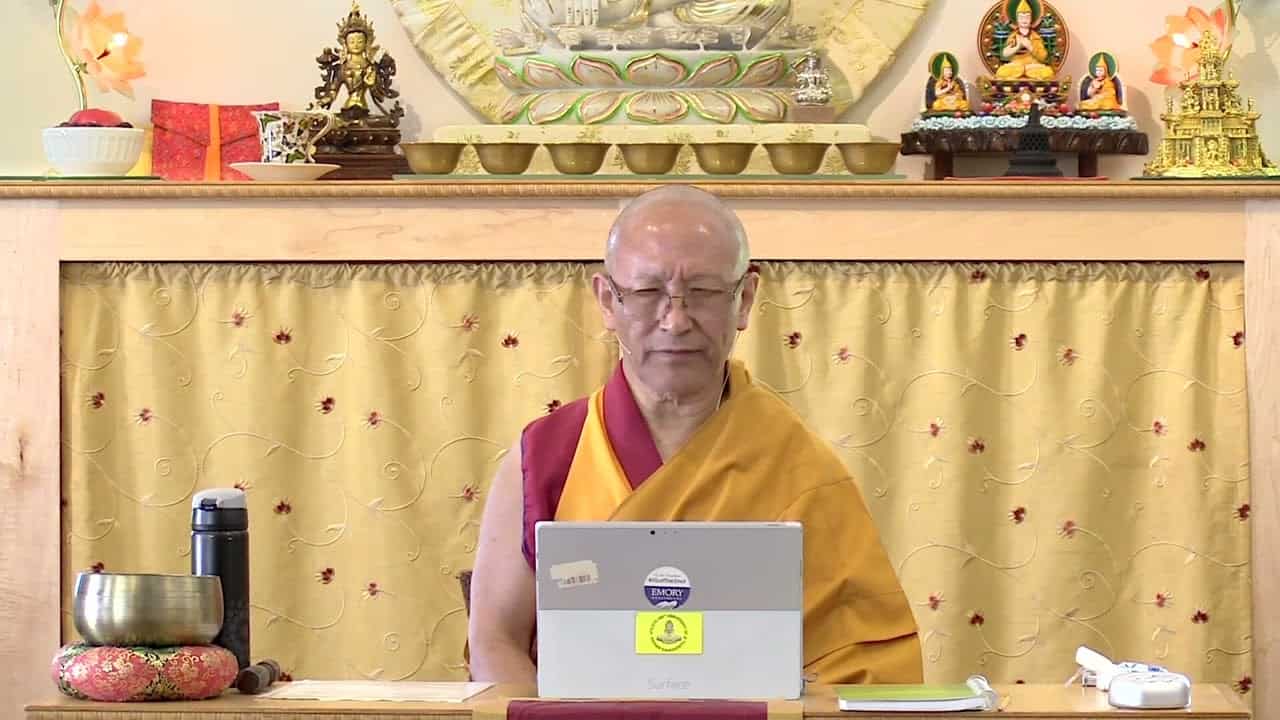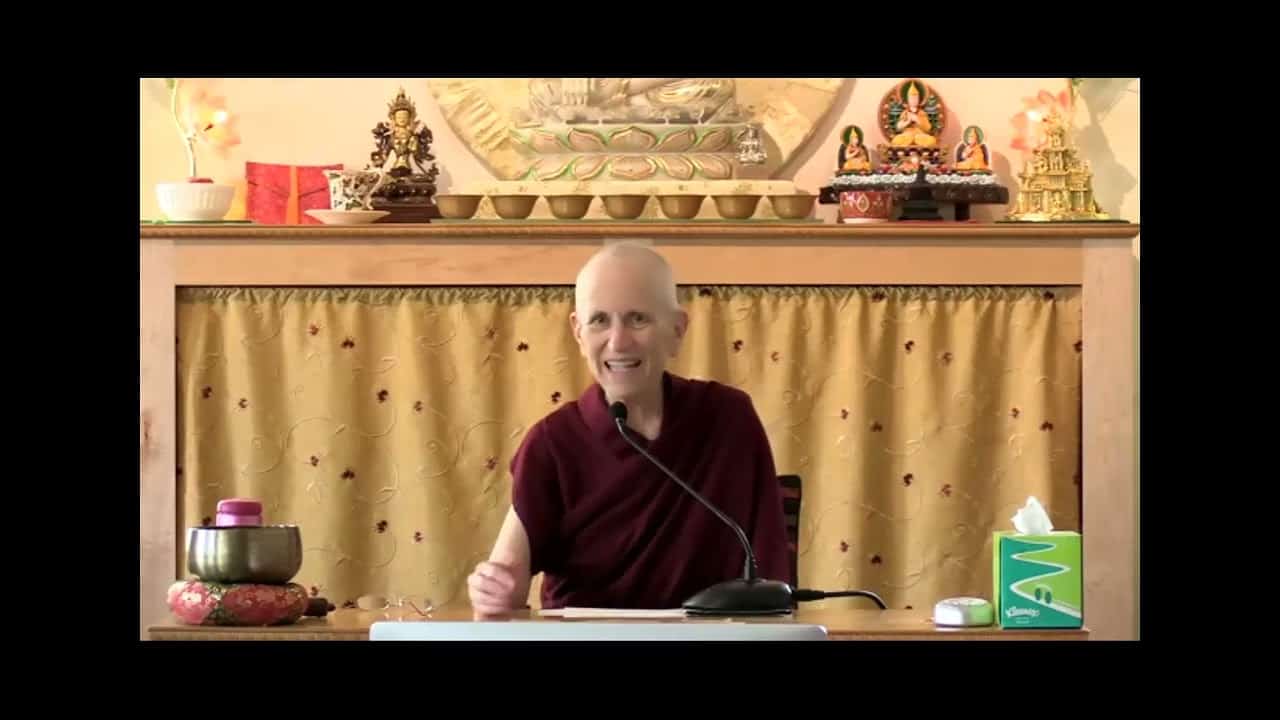The potential for liberation
112 Samsara, Nirvana, and Buddha Nature
Part of an ongoing series of teachings (retreat and Friday) based on the book Samsara, Nirvana, and Buddha Nature, the third volume in The Library of Wisdom and Compassion series by His Holiness the Dalai Lama and Venerable Thubten Chodron.
- Contemplating all sentient beings as wanting to happy and free from suffering
- Different types of obstructions that prevent the mind to perceive things
- Afflictive obscurations and cognitive obscurations
- Three factors that make the liberation possible
- Ignorance and afflictions don’t have a valid basis
- Virtuous qualities cannot be undermined by wisdom
Samsara, Nirvana, and Buddha Nature 112: The Potential for Liberation (download)
Contemplation points
- Take some time to consider that every living being is driven by the wish to be happy and not suffer. Think about reports from the news, the people you know, and yourself. Is this true from your experience, in what you hear and see around you? Consider how powerful that internal drive is. What kinds of actions do you do to get what you want and avoid what you don’t want? Allow compassion to arise that this is the experience of every sentient being.
- What is the nature of the mind? What is its potential and what obstructions can hinder this potential? Make examples of different kinds of obstructions.
- Spend some time imagining the potential for the mind to remain in a completely peaceful state no matter what arose externally. Contemplate some scenarios that you normally find disturbing, but now imagine that your mind is perfectly calm. What would that be like
- Consider the three factors that make liberation possible: the basic nature of the mind is pure, afflictions are adventitious, and its possible to cultivate powerful antidotes. Describe each in your own words and reflect on them. Really spend time considering that liberation, a state without disturbing emotions and wrong views, a state where the mind rests peacefully in every moment, is in fact possible because of these factors.
Venerable Thubten Chodron
Venerable Chodron emphasizes the practical application of Buddha’s teachings in our daily lives and is especially skilled at explaining them in ways easily understood and practiced by Westerners. She is well known for her warm, humorous, and lucid teachings. She was ordained as a Buddhist nun in 1977 by Kyabje Ling Rinpoche in Dharamsala, India, and in 1986 she received bhikshuni (full) ordination in Taiwan. Read her full bio.


